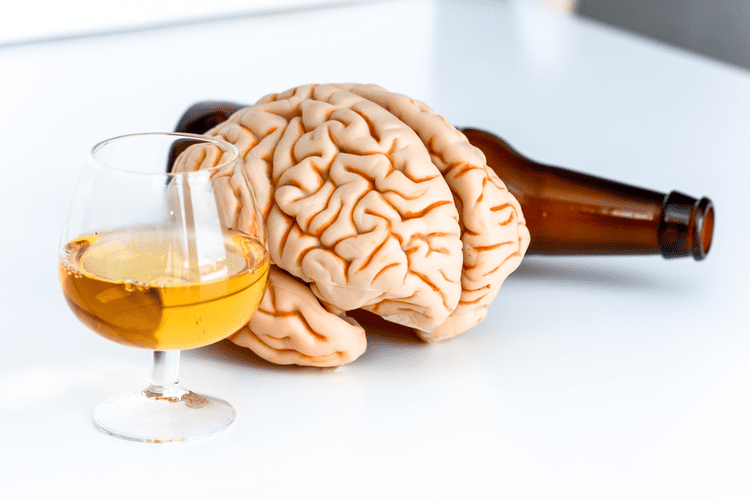Pharmacogenetics is an emerging field that focuses on understanding how genetic variations can influence an individual’s response to drugs. In the context of alcoholism, pharmacogenetics plays a crucial role in the development of personalized treatment strategies. Genetic factors play a significant role in an individual’s risk of developing alcoholism and their response to various treatments.
- This innovative treatment involves modifying the patient’s genome to correct or replace faulty genes that may increase the risk of developing the disease.
- Understanding the interactions between alcohol and neurotransmitters can help researchers develop targeted treatments for alcoholism.
- Alcohol addiction, a chronic relapsing disorder characterized by compulsive alcohol-seeking behavior and loss of control over consumption, is a major global health problem.
- If you or someone you care about is struggling with alcohol addiction, contact us today to learn more about our treatment programs.
Epigenetics and Alcoholism
By understanding your family history, genetic predisposition, and environmental influences, you can take proactive steps to minimize risk and make informed choices about alcohol consumption. Other enzymes that break down alcohol have also been studied for their genetic contribution to alcohol dependence. Alcohol dehydrogenase (ADH), the enzyme responsible for the first step in the conversion of alcohol to acetaldehyde, for example, is actually produced by a family of genes, each of which affects different properties of the enzyme. As is true of many other human disorders, alcoholism does not have a single cause, nor is its origin entirely genetic. Genes can play an important role, however, by affecting processes in the body and brain that interact with one another and with an individual’s life experiences to produce protection or susceptibility. Teasing these effects apart is challenging, and to date fewer than a dozen genes that influence one’s risk for alcoholism have been identified, although more surely exist.
How is AUD Diagnosed?
- Epigenetic modifications, such as DNA methylation and histone modifications, play a crucial role in gene regulation and have been implicated in addiction-related behaviors.
- It is important to note that while genes can increase the risk of developing alcoholism, they do not guarantee that an individual will become an alcoholic.
- The alcohol researchcommunity has begun to form larger consortia for meta-analyses and it is anticipatedthat with the resulting increase in sample size the number of robust associationswill increase.
Research indicates that individuals with a family history of alcoholism are at a significantly higher risk, with studies suggesting a heritability rate of around 50%. Certain ethnic groups may exhibit genetic protections or vulnerabilities to alcohol-related disorders, highlighting the importance of cultural context in understanding alcoholism. Alcoholism is a complex and multifactorial disease that is influenced by a combination of environmental and genetic factors. A growing body of research has shown a clear link between family history of alcohol addiction and an increased risk for developing alcoholism. While environmental factors such as peer pressure and social stressors play a role in the development of alcoholism, genetics also contribute significantly to an individual’s susceptibility to the disease. Overall, genetics play a significant role in determining an individual’s risk for alcohol addiction.
For Parents with a Family History of AUD:

There are several other genes that have been shown to contribute to Halfway house the riskof alcohol dependence as well as key endophenotypes. In most cases, studiesrecruited families having multiple members with alcohol dependence; such familiesare likely to segregate variants that affect the risk of alcohol dependence. Themost common initial approach was linkage analysis, in which markers throughout thegenome were measured to identify chromosomal regions that appeared to segregate withdisease across many families.
Genetics are responsible for about half of the risk of developing AUD.12 Although AUD is related to genetics, this doesn’t mean there’s a specific gene you inherit that develops the disorder. On the other hand, not having genes linked to alcoholism doesn’t mean you won’t develop an addiction. The goals of this renewal concept are to continue to integrate and share COGA data and to continue to add data across the lifecycle, specifically in the adolescent and young adult (Prospective Study) and older adult (Lifespan Study) cohorts. Given the challenges faced by individuals with a genetic predisposition to alcoholism, it is crucial to have supportive networks in place to assist and guide them through their journey towards recovery. These networks can provide the necessary resources, information, and emotional support is alcoholism a genetic disease to help these individuals navigate the complexities of their condition. Additionally, genes involved in the brain’s reward system, such as the dopamine receptor genes, can influence an individual’s response to alcohol.
Exploring the Impact of Genetics on Alcohol Withdrawal

Twin studies have been an instrumental tool in understanding the role of genetics in the risk of alcohol addiction. By studying the behavior and alcoholism rates of identical twins, who share 100% of their genetic material, and fraternal twins, who share only 50%, researchers can differentiate between genetic and environmental factors that contribute to alcoholism. Understanding the genetic factors that influence alcohol consumption can help in the development of effective treatments for alcoholism.

Thus it is not surprising that diseases of the GI system,including cirrhosis, pancreatitis, and cancers of the upper GI tract are affected byalcohol consumption80-86. Located in New Hampshire, Liberty Health Services offers exceptional medical detox and customized addiction treatment for individuals throughout New England. Our supportive environment and experienced team are dedicated to helping you start your path to long-term wellness and recovery.



